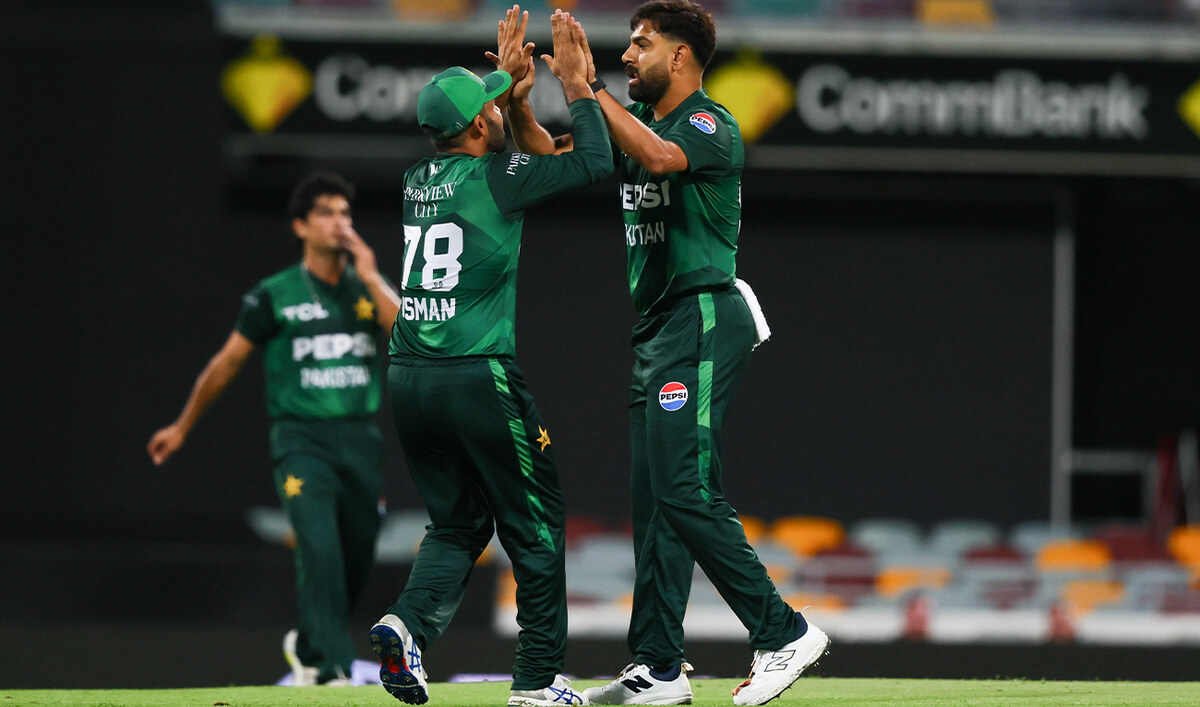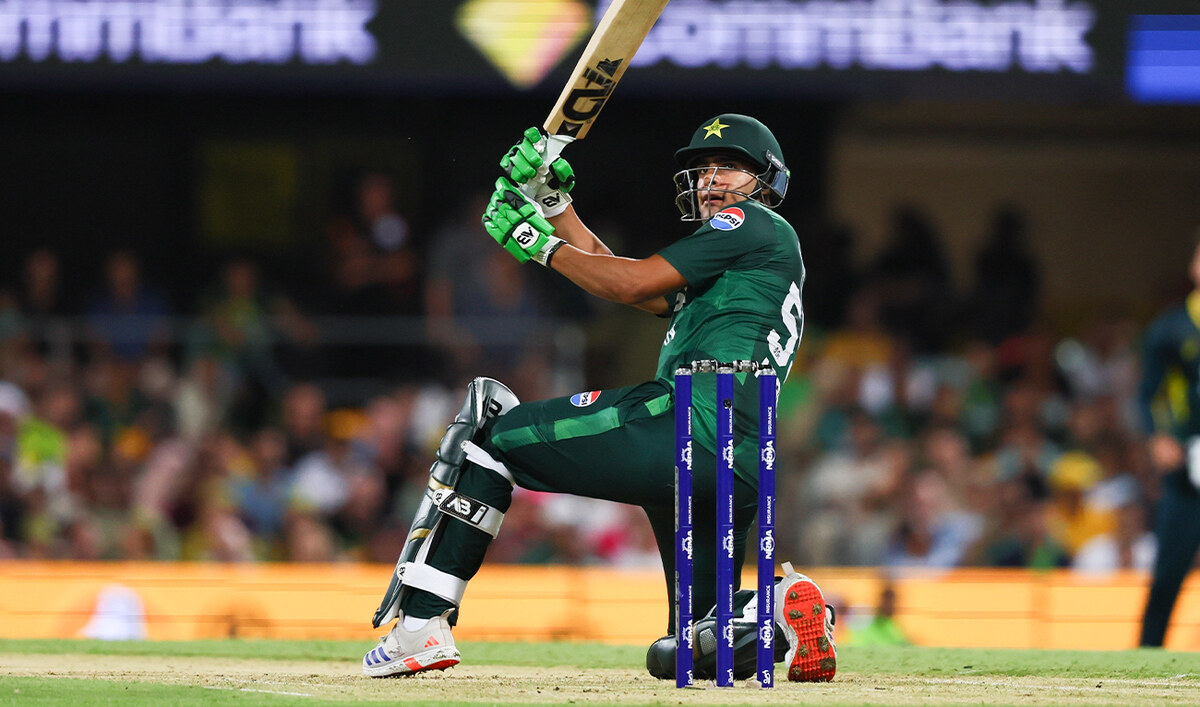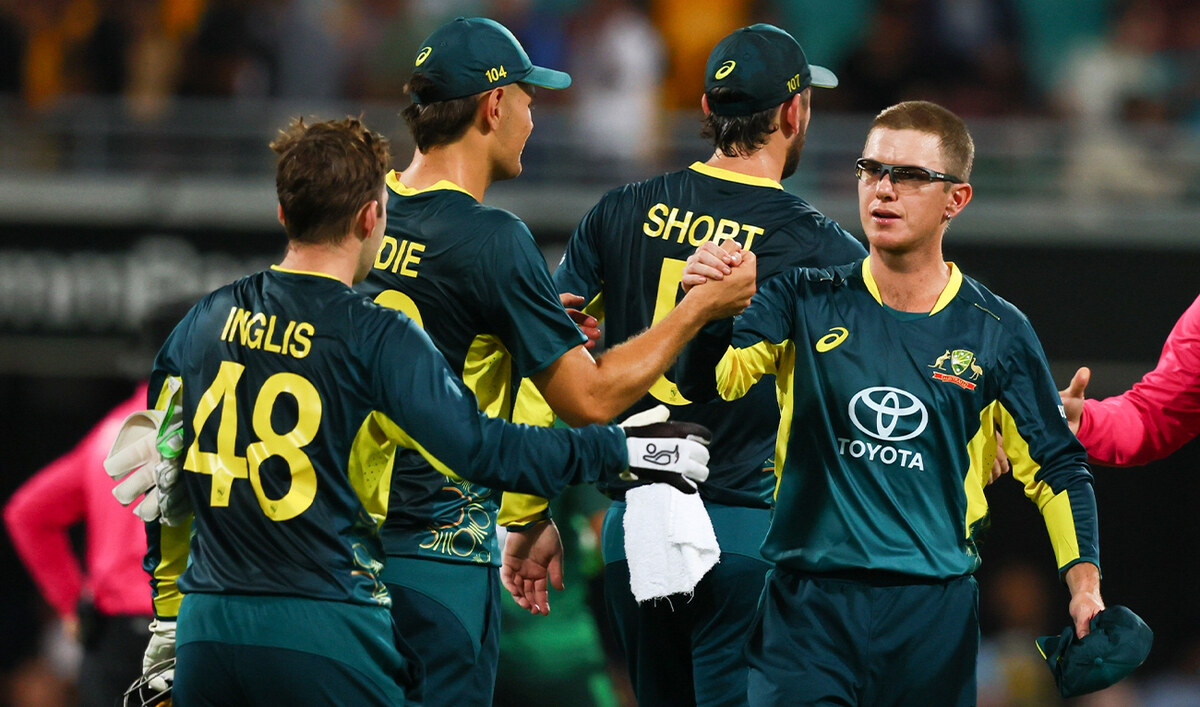BRISBANE: Glenn Maxwell’s robust 43 off 19 balls helped Australia thump Pakistan by 29 runs in a rain-shortened first Twenty20 on Thursday.
After a nearly three-hour delay due to lightning and rain, the match was shortened to seven overs per side.
Maxwell powered Australia to 93-4 and Pakistan reached only 64-9 after slumping to 16-5 inside the first 15 balls.
Nathan Ellis (3-9) and Xavier Bartlett (3-13) ran through the top order before No. 8 batter Abbas Afridi’s unbeaten 20.
“Certainly had a lot of fun out there,” Maxwell said. “We thought we had enough on the board … the bowlers did a great job. There was a few of us who had packed our bags expecting the game to be called off, so it was a mad rush to get ready.”

Pakistan’s Haris Rauf and Usman Khan (left), celebrate the dismissal of Australia’s Matt Short during the T20 cricket international between Pakistan and Australia at the Gabba in Brisbane, Australia, on November 14, 2024. (AP)
Maxwell followed scores of 0, 16, 0 in the preceding one-day international series won by Pakistan 2-1 by smacking three sixes and five boundaries. He played some extravagant lap shots to third man against the pace of Haris Rauf (1-21) and Naseem Shah (1-37).
Maxwell fell in the penultimate over when he hooked Abbas Afridi (2-9) to backward square leg but Marcus Stoinis provided a final flourish with an unbeaten 21 off seven balls. Stoinis smashed 20 runs in Shah’s last over with two fours and six.
None of the top six Pakistan batters reached double figures.
Sahibzada Farhan hit Spencer Johnson for two successive boundaries off the first two balls he faced before mistiming a pull shot off the fourth ball and holing out at midwicket.
Mohammad Rizwan, in his first match as the Pakistan skipper, fell to the first ball when he top-edged Bartlett to point. Usman Khan was caught at third man in the same over.
Ellis struck twice in his first over when Babar Azam was caught in the deep and Jake Fraser-McGurk snapped his third catch as Irfan Khan also offered a tame catch at deep midwicket.
Pakistan was 24-6 in the fourth over when Salman Ali Agha scored only 4 in his debut T20, guiding a sharp, short Bartlett delivery to Australia first-time captain Josh Inglis on the run.

Pakistan’s Abbas Afridi bats during the T20 cricket international between Pakistan and Australia at the Gabba in Brisbane, Australia, on November 14, 2024. (AP)
Leg-spinner Adam Zampa clean-bowled Shaheen Shah Afridi and Naseem Shah off successive balls in the last over to complete the rout.
“It was difficult to keep things normal in a seven-over game,” Rizwan said. “Got to give credit to Maxy, his style worked really well.”

Australia’s Adam Zampa, right, celebrates with teammates after defeating Pakistan during the T20 cricket international between Pakistan and Australia at the Gabba in Brisbane, Australia, on November 14, 2024. (AP)
The second T20 is in Sydney on Saturday, and the last in Hobart on Monday.

















